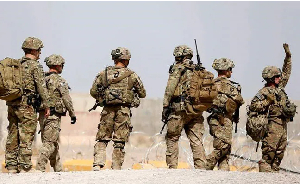Regional News of Tuesday, 14 June 2011
Source: GNA
248 extremely poor identified in Ho for financial support
Ho, June 14, GNA - At least 248 extremely poor persons in the Ho Municipal area have been identified for financial support under the Social Inclusion Transfer (SIT) of the Urban Poverty Reduction Programme (UPRP). They include orphans and vulnerable children, lactating mothers, People Living With HIV and AIDS and pregnant women from four zones in the Municipal area. They will be given between GHC 60 and GHC 110 every three months. Mr Isaac Kodobisah, Ho Municipal Chief Executive who launched the
Programme in Ho on Tuesday, expressed optimism that Ghana would achieve the
Millennium Development Goal (MDG) of halving extreme poverty ahead of the 2015
time frame.
He said, "Our country is now a middle income country and with the oil find and
the present prudent management of the economy, there is every indication that the
country is on a forward march to become one of the strongest economies in Africa." Mr Kodobisah said Ghana's economy had seen a remarkable improvement over
the last decade especially the last two years. "The poverty rate which was 52 per cent at the beginning of 1990s dropped to
28.5 per cent by 2006 according to the World Bank report," he said. Mr Kodobisah said irrespective of that achievement, there still remained many
more people who were extremely poor and could not afford a 93simple meal a= day"
and needed support to contribute their quota towards national development. He said apart from pro-poor interventions such as the supply of free textbooks,
school uniforms, capitation grant and the school feeding programme, the government
was embarking upon massive infrastructure development of social services. Mr Joseph Acheampong, the Executive Director of the Social Investment Fund
(SIF) in a speech read on his behalf, said SIT was to complement the Liveli= hood
Empowerment Against Poverty (LEAP) programme. He said the programme would offer social protection for the extremely poor
whose potentials have been marginalized and looked on as drawbacks in socie= ty. Mr Acheampong said the Ho Municipal Assembly to position itself so it could
own the programme when the UPRP ended its operations.




![Construction has stalled on the National Cathedral [Image Credit: Nipah Dennis/Al Jazeera] Construction has stalled on the National Cathedral [Image Credit: Nipah Dennis/Al Jazeera]](https://cdn.ghanaweb.com/imagelib/pics/588/58802743.295.jpg)





